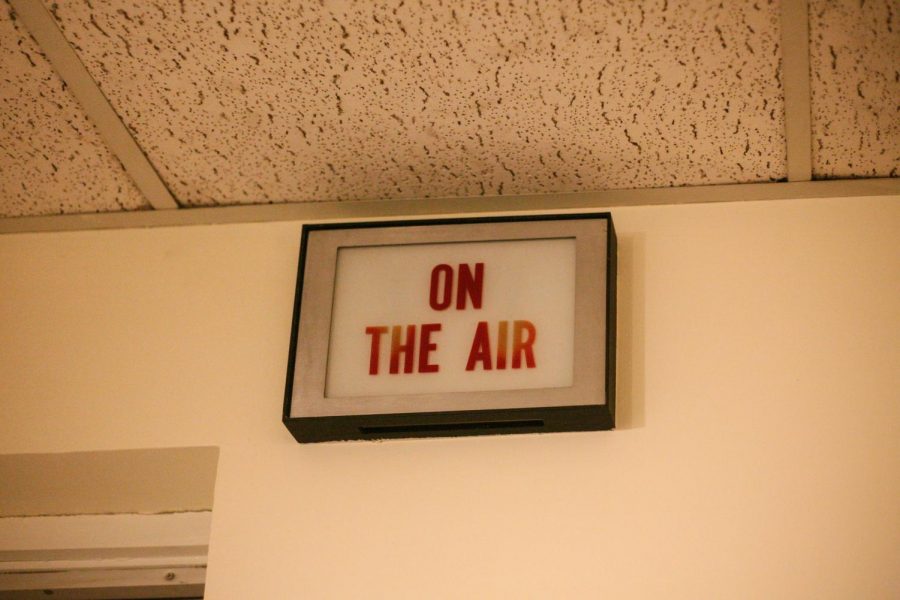Whenever I get into my car, my immediate task is to open Spotify on my phone and put on the “Girls Gotta Eat” podcast. Whether I am going to be driving for a few minutes, or cruising for a few hours, I want to listen to the hosts, Ashley Hesseltine and Rayna Greenberg, humorously banter about subjects that not only entertain me, but also have a role in my daily life.
Podcasts officially began in 2004, according to International Podcast Day and continue to ensnare the attention of younger generations while also moving radio further toward irrelevancy. Podcasts cover a wide and diverse range of topics allowing for people to engage in topics that are currently interested in, something the radio can’t offer.
Podcasts can be presented in a plethora of various ways. According to Convert Kit, podcasts can be interviews, conversational, educational, non-fiction storytelling, fictional storytelling and “solo-casts.” With this, people are able to tune in to episodes of podcasts that intrigue them.
Juxtaposing this, radio is losing its ratings from younger age groups due to the fact that the medium covers a broad range of news and hosts conversations and discussions considerably at random. Though some radio stations occasionally cover subjects that are of interest to those within these age groups, the inclusion of multiple commercial breaks and songs create can often be unappealing to people.
Today many people either look to Spotify or Apple Music, apps that focus on audio streaming, for their audio needs. Not only do these apps allow people to play the songs they like at will, but it enables them to play the specific kind of content they want to hear, which often now includes podcasts.
For these younger generations, the radio is not used as frequently as in the past. Any news they care to hear about comes to them via social media sites on their phones or other technology, as well as any music they want to hear can be played by said apps on their devices. Therefore, radio stations lack accessibility and engagement much from these age groups, and ultimately are losing their purpose.
New York University’s Steinhardt Music Business Program published a study that cast a “sobering outlook on the future of terrestrial radio.” It states, “In the 30-page report, Larry Miller argues that traditional radio has failed to engage with Generation Z — people born after 1995 — and that its influence and relevance will continue to be subsumed by digital services unless it upgrades.”
With the current consumption of podcasts, such is being proven true. In addition, the article shares a highlight from the report, “Generation Z, which is projected to account for 40 percent of all consumers in the U.S. by 2020, shows little interest in traditional media, including radio, having grown up in an on-demand digital environment.” This highlight furthers emphasizes how younger age groups today reject the radio for multiple reasons and are turning to other devices to give them the content they want or need.
Unlike radio, the varying discussions and topics in podcasts are not completed in just a few minutes. Most podcasts utilize their entire episodes to discuss their specific topic. This is what makes podcasts a unique medium, and, what peaks the attention of listeners. People can listen to the full podcast, in which typically ranges from an average of forty minutes to about two hours along with listening to a subject they want to hear during the entirety of its run time.
For me, it was “Girls Gotta Eat” that began my infatuation with podcasts. This podcast discusses a series of questions sent in by listeners and often includes consultations with experts on the given topics of the questions. Overall, this podcast – mostly humorously, but also sometimes seriously – discusses questions related to daily life, needs and desires. I listen to this podcast and each episode simply because its content is relevant to me. This mindset is the same for the majority of other podcast listeners.
According to Podcast Insights, there are over 750,000 podcasts today. Therefore, podcasts are not only increasing in their listener-ratings, but also growing in their numbers. People not only want to hear what they wish to, but they want to speak on the things they like, too. Radio stations are truly falling behind.
Makailey Cookis can be reached at [email protected].





















Jon Blomstrand • Oct 17, 2019 at 4:13 pm
You may want to dig into who produces the podcasts you are listening to. The major media companies are producing massive amounts of podcasts everyday. Over the air is only one of many ways radio stations are now delivering the content they produce. Good quality content takes time and money to produce. Of course any idiot with an opinion and a microphone can produce a podcast, but do you really want to listen to that?
Steve Sauer • Oct 17, 2019 at 11:04 am
Radio’s purpose for being is to give it’s listening area live and local news, commentary, produced shows and other entertainment. It’s sad to think that the younger generation would pass up the opportunity to find out what’s happening around them in real time. Reminds me of a well shared quote, “Stop and smell the roses”.
Ron Kellington • Oct 16, 2019 at 4:30 pm
Good article supporting podcasts but I think Makailey is over simplifying things a bit. I listen to two different radio stations during my 1-hr commute each direction… both with a lot of traffic updates. One reason I don’t listen to podcasts very often is because they’re often too long. Our morning alarm goes off playing a local radio station…get a feel for the day…the weather…the traffic…pressing ‘news’ one of which a podcast can deliver. Radio is changing and most will survive… whenever there’s a natural disaster or a serious issue lots of people tune into their radios for current events. I”ll do my Spanish lessons & occasionally listen to something on Apple Music, but radio is even on my phone with the RadioPlayer app.
Roy humphrey • Oct 16, 2019 at 2:08 pm
I’m 83 and grew up with radio. However, I seldom listen to it anymore. I can get what I want, when I want it via my phone.